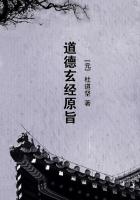Further, it deserves to be noted that the names Pygmalion and Astarte occur together in a Punic inscription on a gold medallion which was found in a grave at Carthage; the characters of the inscription are of the earliest type. As the custom of religious prostitution at Paphos is said to have been founded by king Cinyras and observed by his daughters, we may surmise that the kings of Paphos played the part of the divine bridegroom in a less innocent rite than the form of marriage with a statue; in fact, that at certain festivals each of them had to mate with one or more of the sacred harlots of the temple, who played Astarte to his Adonis. If that was so, there is more truth than has commonly been supposed in the reproach cast by the Christian fathers that the Aphrodite worshipped by Cinyras was a common whore. The fruit of their union would rank as sons and daughters of the deity, and would in time become the parents of gods and goddesses, like their fathers and mothers before them. In this manner Paphos, and perhaps all sanctuaries of the great Asiatic goddess where sacred prostitution was practised, might be well stocked with human deities, the offspring of the divine king by his wives, concubines, and temple harlots. Any one of these might probably succeed his father on the throne or be sacrificed in his stead whenever stress of war or other grave junctures called, as they sometimes did, for the death of a royal victim. Such a tax, levied occasionally on the king's numerous progeny for the good of the country, would neither extinguish the divine stock nor break the father's heart, who divided his paternal affection among so many. At all events, if, as there seems reason to believe, Semitic kings were often regarded at the same time as hereditary deities, it is easy to understand the frequency of Semitic personal names which imply that the bearers of them were the sons or daughters, the brothers or sisters, the fathers or mothers of a god, and we need not resort to the shifts employed by some scholars to evade the plain sense of the words. This interpretation is confirmed by a parallel Egyptian usage; for in Egypt, where the kings were worshipped as divine, the queen was called the wife of the god or the mother of the god, and the title father of the god was borne not only by the king's real father but also by his father-in-law. Similarly, perhaps, among the Semites any man who sent his daughter to swell the royal harem may have been allowed to call himself the father of the god.
If we may judge by his name, the Semitic king who bore the name of Cinyras was, like King David, a harper; for the name of Cinyras is clearly connected with the Greek cinyra, a lyre, which in its turn comes from the Semitic kinnor, a lyre, the very word applied to the instrument on which David played before Saul. We shall probably not err in assuming that at Paphos as at Jerusalem the music of the lyre or harp was not a mere pastime designed to while away an idle hour, but formed part of the service of religion, the moving influence of its melodies being perhaps set down, like the effect of wine, to the direct inspiration of a deity. Certainly at Jerusalem the regular clergy of the temple prophesied to the music of harps, of psalteries, and of cymbals; and it appears that the irregular clergy also, as we may call the prophets, depended on some such stimulus for inducing the ecstatic state which they took for immediate converse with the divinity. Thus we read of a band of prophets coming down from a high place with a psaltery, a timbrel, a pipe, and a harp before them, and prophesying as they went. Again, when the united forces of Judah and Ephraim were traversing the wilderness of Moab in pursuit of the enemy, they could find no water for three days, and were like to die of thirst, they and the beasts of burden. In this emergency the prophet Elisha, who was with the army, called for a minstrel and bade him play. Under the influence of the music he ordered the soldiers to dig trenches in the sandy bed of the waterless waddy through which lay the line of march. They did so, and next morning the trenches were full of the water that had drained down into them underground from the desolate, forbidding mountains on either hand.
The prophet's success in striking water in the wilderness resembles the reported success of modern dowsers, though his mode of procedure was different. Incidentally he rendered another service to his countrymen. For the skulking Moabites from their lairs among the rocks saw the red sun of the desert reflected in the water, and taking it for the blood, or perhaps rather for an omen of the blood, of their enemies, they plucked up heart to attack the camp and were defeated with great slaughter.
Again, just as the cloud of melancholy which from time to time darkened the moody mind of Saul was viewed as an evil spirit from the Lord vexing him, so on the other hand the solemn strains of the harp, which soothed and composed his troubled thoughts, may well have seemed to the hag-ridden king the very voice of God or of his good angel whispering peace. Even in our own day a great religious writer, himself deeply sensitive to the witchery of music, has said that musical notes, with all their power to fire the blood and melt the heart, cannot be mere empty sounds and nothing more; no, they have escaped from some higher sphere, they are outpourings of eternal harmony, the voice of angels, the Magnificat of saints. It is thus that the rude imaginings of primitive man are transfigured and his feeble lispings echoed with a rolling reverberation in the musical prose of Newman. Indeed the influence of music on the development of religion is a subject which would repay a sympathetic study. For we cannot doubt that this, the most intimate and affecting of all the arts, has done much to create as well as to express the religious emotions, thus modifying more or less deeply the fabric of belief to which at first sight it seems only to minister. The musician has done his part as well as the prophet and the thinker in the ****** of religion. Every faith has its appropriate music, and the difference between the creeds might almost be expressed in musical notation. The interval, for example, which divides the wild revels of Cybele from the stately ritual of the Catholic Church is measured by the gulf which severs the dissonant clash of cymbals and tambourines from the grave harmonies of Palestrina and Handel. A different spirit breathes in the difference of the music.















